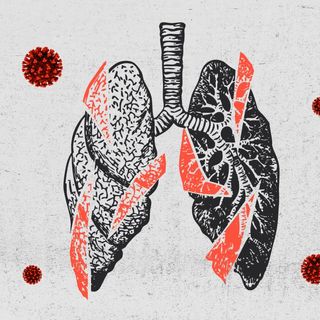Prime Minister Jacinda Ardern announced Monday that New Zealand has successfully curbed widespread community transmission of Covid19. That is, NZ health officials now know where all the new cases are coming from, she said, as the country eases lockdown measures.
For the past four weeks, NZ had imposed a level four lockdown on its population — considered one of the strictest in the world — while diligently testing people suspected of being exposed to the novel coronavirus (at its peak, NZ was administering almost 7,000 tests per day) and carrying out thorough contact tracing. As a result, Ardern said the country has “avoided the worst,” with a virus transmission rate of 0.4, as compared to the global average of 2.5.
But as New Zealand moves down to a level three lockdown, in which a small number of retailers, restaurants, and schools are allowed to open, Ardern warns the approximately one million New Zealanders slated to go back to work to stay vigilant. “We are opening up the economy, but we’re not opening up people’s social lives,” Ardern added.
In New Zealand’s case, winning the battle against Covid19 means they “eliminated” the virus to a degree that it can easily and effectively be handled by healthcare professionals; NZ has not completely eradicated the coronavirus yet. Although good news, NZ’s success story doesn’t necessarily translate to what winning against coronavirus looks like in the rest of the world.
New Zealand is a small, wealthy nation that blocked off all entry points into the country early on, effectively limiting foreign travelers. It has a population that is widely spread out and has a high level of trust in the government. NZ also has a “reasonably coherent” healthcare infrastructure, director of Washington D.C.-based Global Health Policy Center, J. Stephen Morrison, tells Time, which helped the country achieve the current elimination of Covid19. Compare NZ to a densely-populated country like India, with fragmented healthcare, divisive politics and an extremely wide wealth gap — and it becomes clear India is a long way away from pursuing an elimination strategy of the scale NZ undertook.
Related on The Swaddle:
Now Is Not The Time to Get Tired of Social Distancing
In India, a large section of the population — mostly poor, migrant laborers and daily wage workers — are not able to practice social distancing, which makes managing the spread of the pandemic difficult. In addition, India is still attempting to secure enough functional testing kits and proper protective equipment for its healthcare professionals. The Covid19 lockdown has already been extended in India once, and Prime Minister Narendra Modi has hinted it might extend further in what the health ministry has dubbed “hotspots” of Covid19. With these issues in mind, many experts are calling for easing of lockdown measures to help people go back to work so they can feed their families, while others argue any easing will simply aid a second wave of Covid19 cases, even as India’s heathcare system remains unprepared to handle it.
Winning against Covid19 might mean the elimination of the coronavirus in NZ. In the rest of the world, especially countries that are relatively poorer and densely populated, winning might just mean being able to ensure equitable distribution of resources to sustain this fight.
There is, however, one thing that world leaders can learn from Ardern, executive development lecturer at Massey University in Auckland, Suze Wilson, tells Time — “Throughout, her messaging has been clear, consistent and delivered in a confident, calm and reassuring manner, even though she has not sought to sugar coat the dangers the pandemic poses to lives and livelihoods … Those qualities are replicable in every democracy, but have been in too short supply.”




